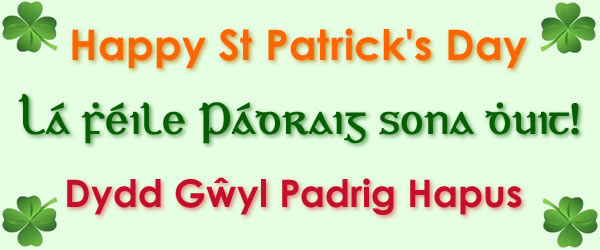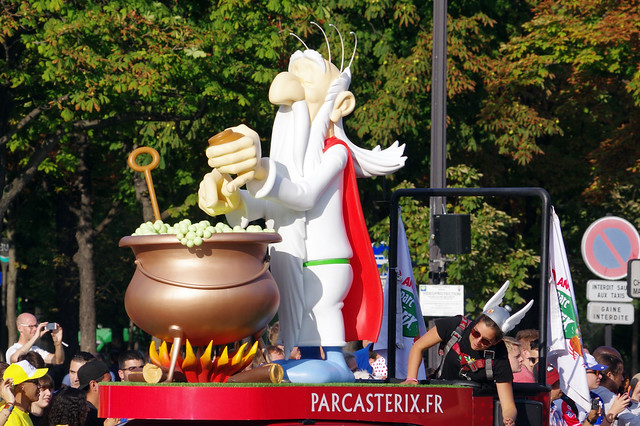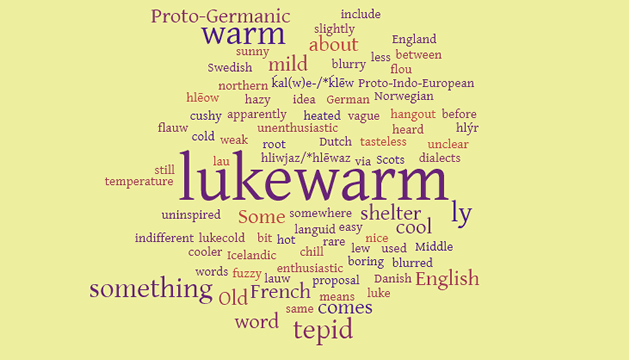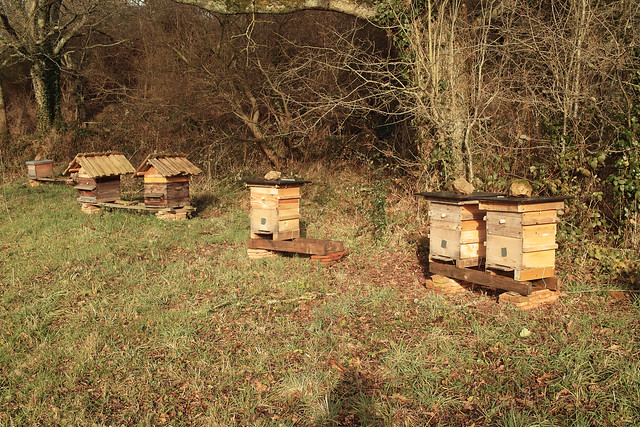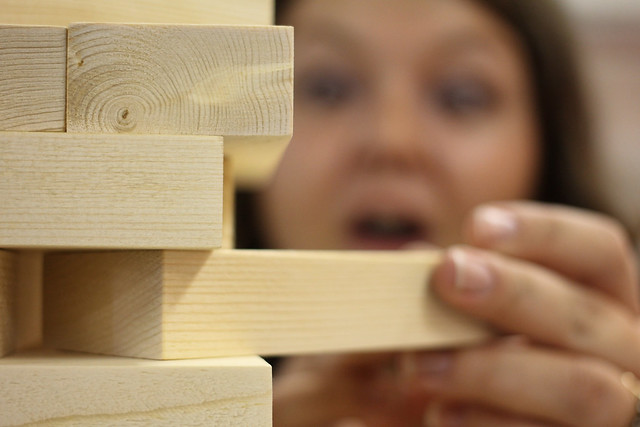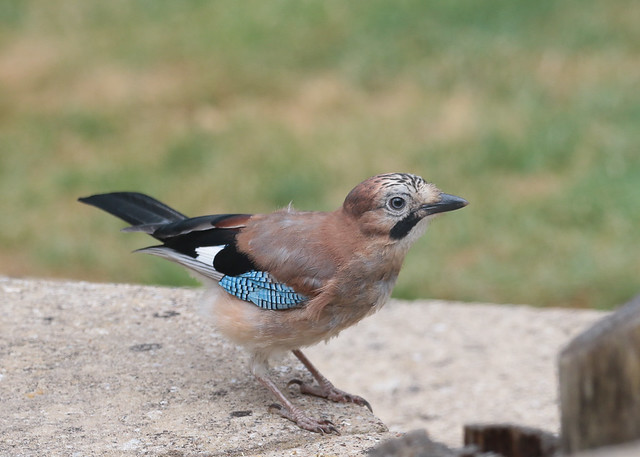A Dutch I learnt recently is uitdaging [ˈœy̯tˌdaː.ɣɪŋ], which means a challenge. It comes from uitdagen (to challenge), from uit (out, off, over), and dagen (to dawn, light, rise, start, call).
Dagen comes from the Middle Dutch dāgen (to dawn, rest (a horse), delay, summon), from the Old Dutch *dagon, from the Proto-Germanic *dagāną [ˈdɑ.ɣɑː.nɑ̃] (to dawn, to become day) [source].
The Scots word daw [dɑ:] (to dawn) comes from the same Proto-Germanic root, via the Middle English dawen and the Old English dagian (to dawn), as does the obselete English word daw [dɔː], which means to dawn, wake up, daunt or terrify [source].
The word dawning, a poetic word for dawn or the first beginnings of something, comes from the same Proto-Germanic root, and from it we get the word dawn (to begin to brighten with daylight, to start to appear) [source].
The unrelated word daw is an old name for the jackdaw (Coloeus monedula), and also means idiot, simpleton or fool. It comes from the Middle English dawe, from the Old English dāwe, from the Proto-Germanic *dēhǭ (jackdaw), from the Proto-Indo-European *dʰākʷ- (jackdaw, starling, thrush) [source].
Daw is also found in Scots, and means a sluggard; a lazy, idle person; a slattern, a drab or an untidy woman, and comes from the jackdaw sense of daw [source].


